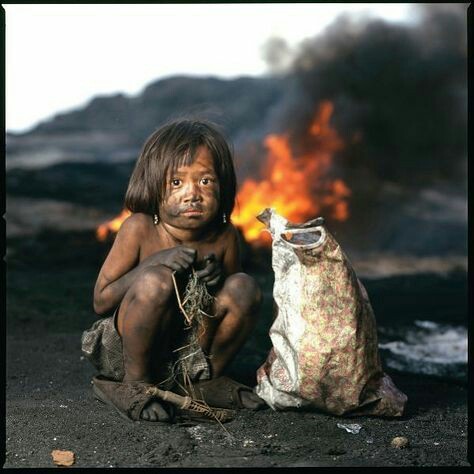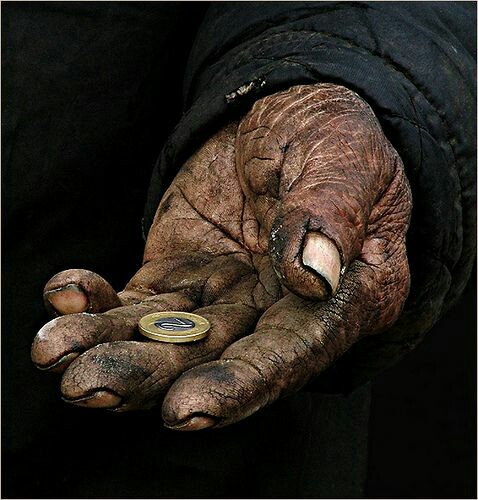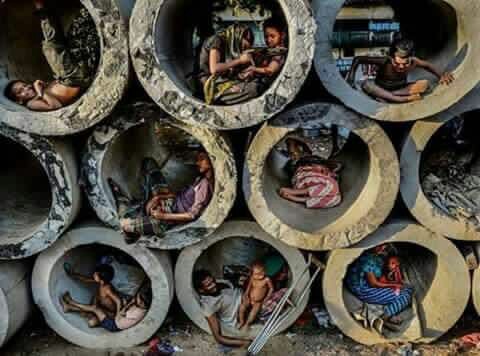Every year International Day for the Eradication of Poverty is observed on October 17 and its observance can be traced back to October 1987. The main aim of observing this as an international day was to spread awareness to end global poverty in all possible manner.
A world that is being categorised by an unprecedented level of economic growth, financial resources, technological access, in that millions of people living in extreme poverty is a moral outrage. Poverty cannot be only categorised as an economic problem but rather a multidimensional phenomenon which includes incapability, compromising with dignity, dangerous work conditions, unsafe housing, lack of nutritious food, unequal access to justice, lack of political power, limited access to health care and much more if dwelled deeper.

The UN General Assembly declared poverty as a violation of human rights and said that it’s time to respect the rights of the poor and their issues be addressed on a mass level.
COVID-19 and Extreme Global Poverty
Humans encountered many speed breakers enroute the path of progress. Religion, colonisation, slavery, exploitation of natural resources, world war-I, great depression, world war-II, terrorism,…etc, were some of the reasons that clogged us from advancing. There were natural disasters, pandemics, and economic disparities as well which stood as barricades in our progress but, the COVID-19 pandemic went a little further ahead. It completely halted us like a toll booth and we paid a hefty price before going forth. Most of the countries have gone through a draconian change in their economy during this pandemic.
According to the findings of ‘The World Food Program’, 265 million people will soon be on the brink of starvation, the reason being the effect of the novel coronavirus.
Countries like the United Kingdom, Australia, Spain and Italy are facing an economic downfall which is worse than the last recession. In Australia, economic situations are more than twice as negative in 2020 than in 2008. It is not only India which has experienced a fall in its GDP but, the top economies of the world have suffered the worst GDP fall due to COVID-19 too.

To clarify a bit more with some countries data, let’s have a quick look.
- India‘s economy suffered its worst fall in the April-June quarter, 2020 with GDP contracting by 23.9 per cent.
- The United Kingdom, second consecutive quarterly decline reported 21.7 per cent downfall in GDP, in the April-June quarter of 2020
- France‘s economic growth (GDP) contracted by 18.9 per cent in the April-June quarter of 2020.
- Italy‘s economy showed the lowest on record since Q1 of 1995 as GDP shrank 17.7 per cent in the April-June quarter of 2020.
- Canada showed a decline in its GDP by 13 per cent (as per CEIC) in the April-June quarter of 2020.
- Germany‘s economic growth shrank this year by 11.3 per cent in the April-June quarter of 2020.
- The GDP of Japan shrank by a record of 9.9 per cent in the April-June quarter of 2020.
- The US showed the largest quarterly decline since the series began in 1947 as GDP shrank 9.1 per cent for the April-June quarter of 2020.
Excluding China, which grew by 3.2 per cent, all other major economies have felt the negative impact of coronavirus pandemic, including job loss, loss of remittances, higher prices, rationing of food and other basic goods, and disruptions to health care services and education.
COVID-19 Hit The Poor The Hardest.
COVID-19 pandemic is a crisis like no other universe ever faced before in terms of economic and social destructive aspects it caused.
According to the World Bank report, the pandemic could push about 49 million people into extreme poverty in 2020. Also reported that India alone has 176 million people who are living in extreme poverty and earn less than 1.9 $ a day.

The impact of this pandemic will be felt by most of the population but this effect will be deeper and long-lasting amongst poor, who are more unprivileged due to many reasons like the places they live, locations they work in, higher dependence on public services especially health and education, limited savings and much more.
- COVID-19 pandemic is not only just a health crisis; it is an economic and food security crisis for hundreds of millions of people living in extreme poverty worldwide.
- 160,000 children, suffered from moderate or severe malnutrition before COVID-19.
- 300,000+ children are at risk of malnutrition and wasting because of COVID-19.
- 10,000+ children worldwide are dying from hunger each month because of the COVID-19 pandemic.
Unless our government begins the process of reconstruction and reinventing the economic system, we should not expect anything to fundamentally change in the coming years. That is why economic reform is the most important precondition to national progress at this point in history.

“They used to say, the old ones die and the new ones forget.” The old ones did die_ true, but the new ones didn’t forget the COVID-19 pandemic and the lessons it taught for the generations to come. As Rahm Emanuel quoted during the 2008 financial crisis, “You never want a serious crisis to go waste.”
The repercussion of stumbling again could be as high as the cost of losing our country to the darkest undercurrents of human history.
If we can muster the strength of reforming and reconstructing our economy, we will have the tools needed as a country to begin fixing the many other problems like poverty and unemployment. For now, on this day let’s just remember the ones who are weak, cause it’s every year we celebrate the world poverty eradication day but this year can we not realise why do we need to not just celebrated but, act?








